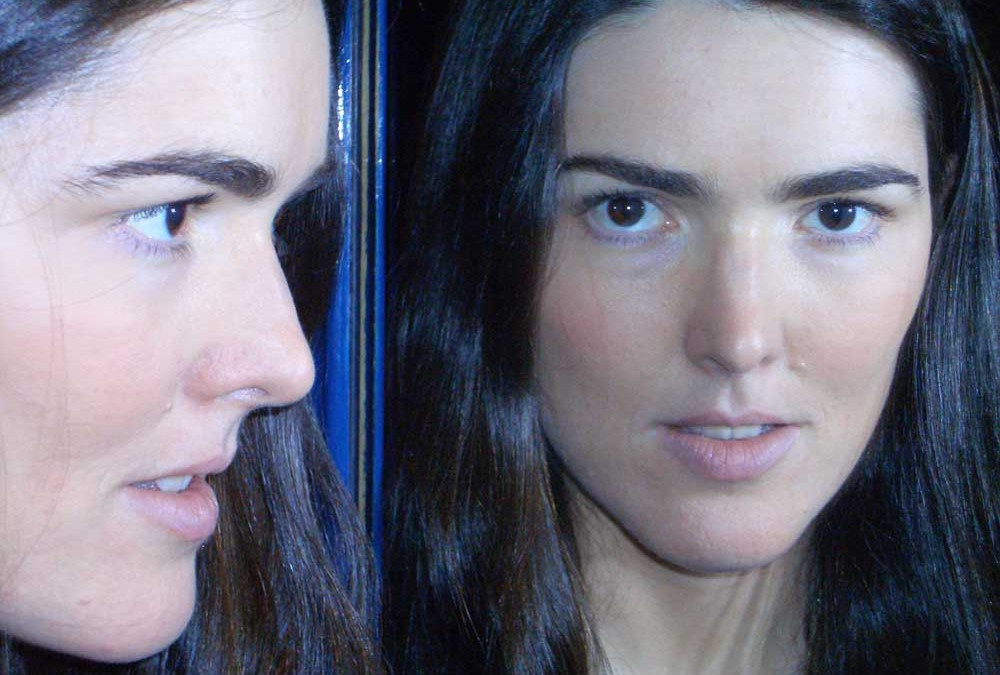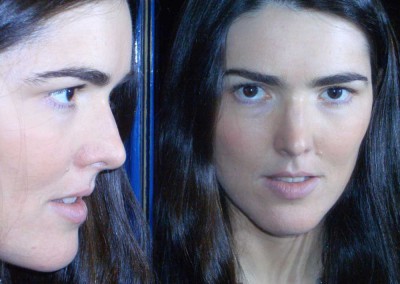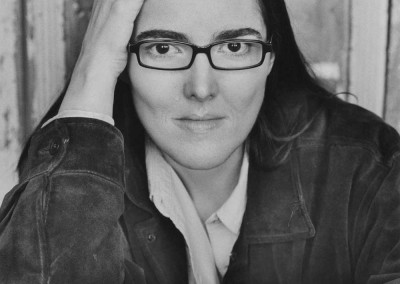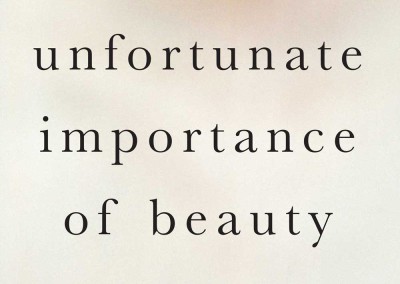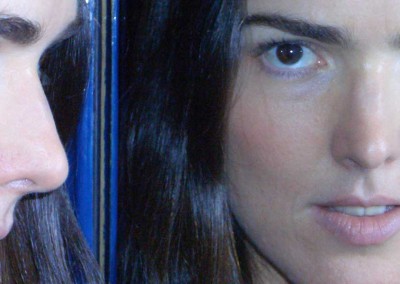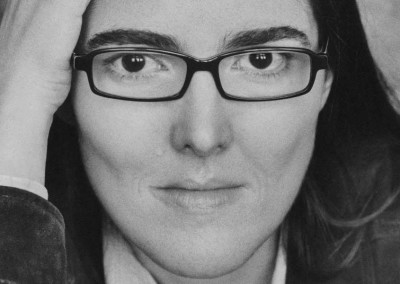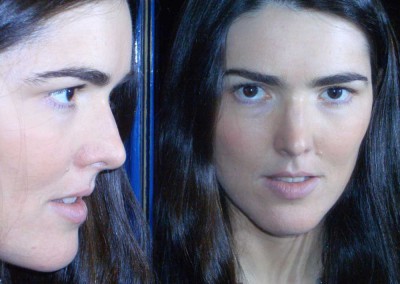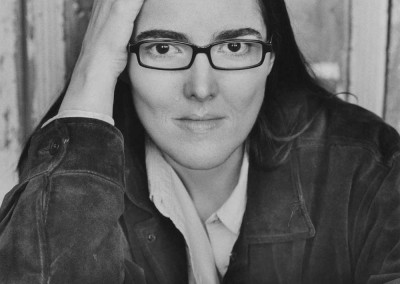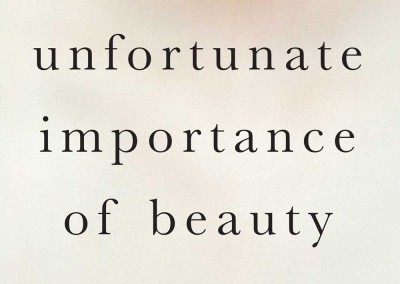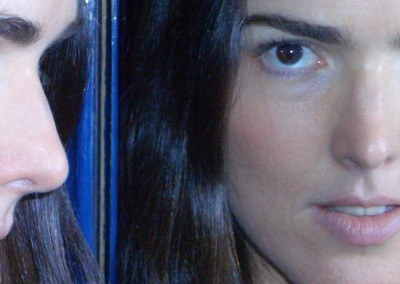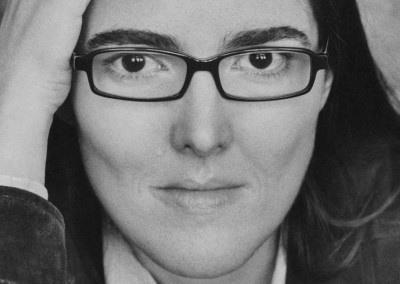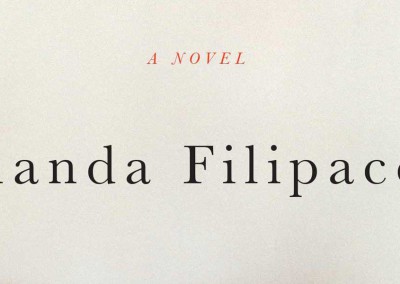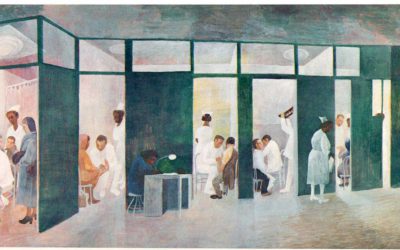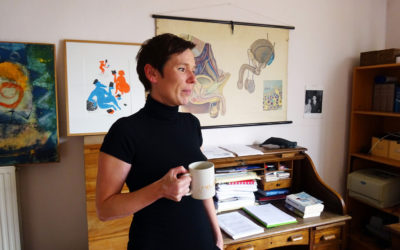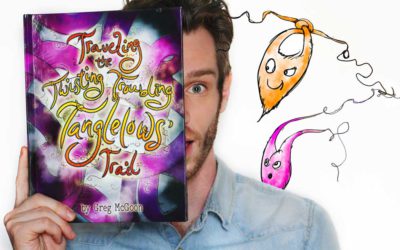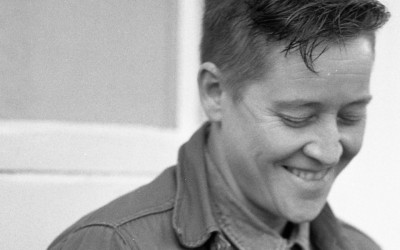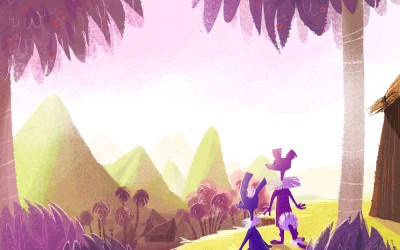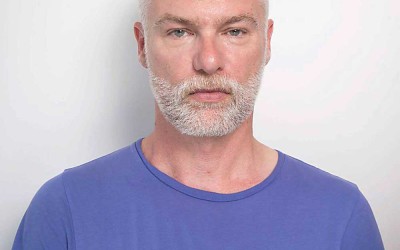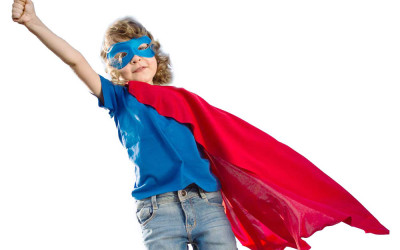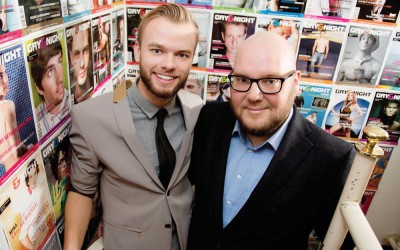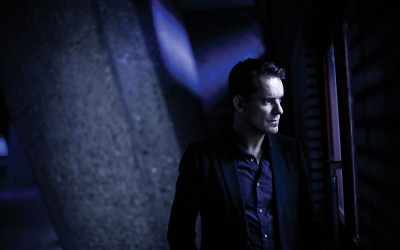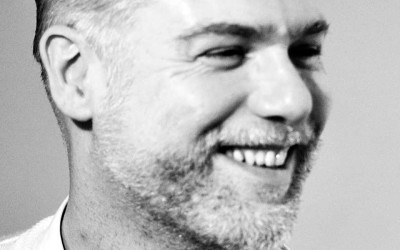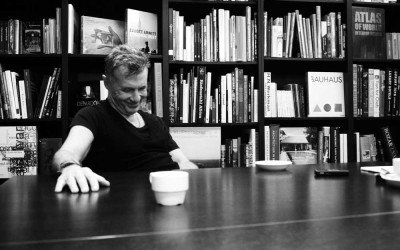Amanda Filipacchi
Text JF. Pierets
I was 20 when I read Nude Men and I instantly got hooked on the surreal imagination of this New York based writer. 21 years and 3 novels later there is The Unfortunate Importance of Beauty, and Filipacchi hasn’t lost an inch of her wit and dreamlike tale telling. On the contrary, her latest novel is a genuine work of originality and creativity. Needless to say I was thrilled to talk to her. A conversation about beauty, feminism and our shared fascination in the dictionary method.
Your readers are forced to be patient. It’s been 10 years between Love Creeps and your new book The Unfortunate Importance Of Beauty. Why did it take you so long?
It’s indeed a long time, but first of all, I take a long time with all my novels. Much longer than I would like to. Each time, I think it’s going to be faster next time, but then, well, it isn’t. Also, each novel is longer than the last. Not the finished product, but my first drafts, which this time around was almost twice as long as the final version. It’s like writing two novels. And the third thing is that I had some health problems I had to deal with. Life problems that got in the way.
The Unfortunate Importance Of Beauty wasn’t supposed to be a book about beauty?
I noticed a pattern in my life; things I wrote about, things that were completely invented, would sometimes come true. So I thought (but only half-seriously) that I’d better be careful and maybe only write about good things, in case they happen later. Turns out, I didn’t stick to that for long, luckily for the reader. In the beginning I thought it was going to be a book about a group of artistic friends. I intended to give each character a story of equal weight. But as I was creating my characters, there was one detail, one characteristic, I bestowed on my main character just for the fun of it: great beauty. I half-jokingly thought, “You never know, it might rub off on me a little.” Her great beauty was meant to be a small, unimportant detail, and I didn’t expect it to grow into one of the main themes of the novel. But it did. It wasn’t something I planned because in general I’m really not that interested in how people look.
“Maybe if I’m lucky it will rub off”. How important is beauty to you?
I meant that in a joking way because beauty is not that important to me. At all! And that’s one thing I find a little disturbing about some of the interviews and articles that have been published about me. Due to the fact that my novel is about beauty, that’s naturally the main thing I’m asked about in interviews. And when I read those interviews later, I feel that I come off as being really preoccupied by beauty, when the truth is actually the opposite. If you compare me to anyone you know, really anyone, you will notice that I seem to care less about how I look than almost anyone. I dress like a dork, I never shop for clothes, I wear sweatpants all the time and I haven’t worn make-up in two decades. But some of the readers of the media coverage have sent me e-mails saying things like, “You look fine! You’re quite pretty! So stop worrying about it, ok?!” It’s very nice of them, but I wish they realized that I probably give less thought to my appearance than they do to theirs.
Hearing you describe the way you look almost sounds like a statement.
It’s more laziness. I used to wear makeup in my 20’s and I couldn’t understand how a woman could not wear make-up because I thought women looked so much better with it. But then suddenly I had to start wearing glasses. And I thought; what’s the point? Glasses ruin the whole effect anyway. So at that point I stopped wearing makeup and that’s basically it. It wasn’t a statement. It was more like a giving up. And eventually my taste changed and I started thinking women looked better without makeup anyway. Despite not caring much about my own appearance, I am interested in the role beauty plays in our society and in human relationships—the unfortunate importance it has in those areas. But there are also plenty of other topics I’m interested in. In fact, there are topics in this book that I’m more interested in than the beauty aspect. For example the whole creativity topic. Trying to achieve excellence in your art, the feeling that you’re almost reaching something supernatural. I love that idea.
What do you do when you don’t write?
Usually I’m trying to get myself to write. I have trouble with discipline so I’m always trying to think of new ways to trick myself into doing more writing. But if you’re asking about other activities, then I must say that I love to ski, so usually in the winter we go skiing. I like to travel, I love interesting conversations with people. I take long walks every day while listening to audiobooks or just thinking about how to get myself to write more. Sometimes I do my daily walk with a friend and we catch up on each other’s lives. That’s about it.
You are using all different kinds of methods to get yourself to write. Do you start your imagination by putting limits on yourself?
I don’t know if it can be called a limit. It’s rather something that forces you to think in a different direction. When I wrote Love Creeps, I became really addicted to what I call “the dictionary method.” I was using it constantly. For every new twist in the story I got inspiration from random words in the dictionary. I actually became worried and was wondering if I was ever going to be able to write without using this dictionary method. So I decided not to allow myself to use it for my next novel. Just to see how it turned out. For The Unfortunate Importance Of Beauty, I didn’t use it once, and to my relief that was ok. I was less an addict than I thought I was. Even though I think my strong point as a writer is my imagination, I did notice that when I used the dictionary method, it seems to trigger new and sometimes even more unusual ideas. Even when I thought I had come up with every possible option for a certain scene, really gone over every possibility, still when I picked a word randomly out of the dictionary it generated new and interesting ideas I’m convinced I wouldn’t have thought of without that method.
You also had a method where you were only eating when writing?
Well, I used that method for only about a minute and then I gave it up, so it didn’t work out very well.
Does life influence your writing?
I think it does. When I wrote Love Creeps, I’d gone through some pretty bad relationships and hadn’t been very lucky in love, so I put all of that in the book. Not the specific experiences, because I almost never write anything autobiographical, but all my pessimism about love went into the book.
Why not write autobiographically? Is it too personal or are you afraid to jinx your life?
I think I don’t find it interesting enough. My recent New Yorker essay, ‘The Looks You’re Born With and the Looks You’re Given’, is the first really autobiographical thing I have ever written. I must say that I have discovered that it’s so much easier and faster to write nonfiction (or autobiographical fiction) because most of the material is already there and doesn’t need to be invented. But I think I will always prefer to make things up in my fiction because I enjoy inventing, creating something entirely new, from scratch, that did not already exist in some form in my life. I like startling myself by coming up with ideas I find original.
‘There are topics in this book that I’m more interested in than the beauty aspect. For example the whole creativity topic. Trying to achieve excellence in your art, the feeling that you’re almost reaching something supernatural.’
What’s your experience regarding being a woman in literature?
I don’t know if this is true, but I’ve heard it said by someone in the literary world that publishers are far less willing to publish long novels by women than long novels by men. Do you know the organization VIDA: Women in Literary Arts? Every year they count the numbers of men vs. women whose books were reviewed in various publications. The numbers are very depressing. Far more men get reviewed than women, and “the count” helps to bring attention to this unfairness which is based on sexism and subconscious gender-bias. It’s important that men and women get reviewed with equal frequency because when women don’t get reviewed as often or as prominently as men, it creates a whole chain reaction that results in far fewer women than men going down in history and being remembered for achievements that are actually of equal worth to men’s.
I recently read Siri Hustvedt’s novel, The Blazing World, in which she describes the Goldberg Study, which was a real study done in 1968: “Women students evaluated an identical essay more poorly when a female name was attached to it than when a male name was attached.” The same results were found when the study was repeated in 1983. When a female book reviewer compiles and publishes her list of her 10 favorite books of the year, and 9 out of 10 of the books on that list happen to be written by men, I hope she asks herself whether she might not be experiencing some degree of subconscious prejudice against female authors. (And this, of course, applies equally to male reviewers.)
We are all very sexist toward women, even those of us who think we’re not. We can’t help it, because we’ve been conditioned from our earliest days. I consider myself a feminist, and yet I see sexism in myself often. Sexism probably can’t ever be completely eradicated, due to biological factors such as differences in physical strength and temperament, but it can be lessened, starting, for example, with paying attention to what kinds of messages we send out in children’s books. Both men and women are prejudiced against women. And it’s essential that we fight it, not only in others but in ourselves.
So you’re a feminist?
Oh yes!
Have you ever done anything to help the feminist cause?
A little bit. Do you know about the Wikipedia thing I was involved in?
No, I guess I missed that.
In April 2013 I wrote an Op-Ed for The New York Times because I noticed that on Wikipedia, female novelists were being taken out of the category called ‘American Novelists’, and being put in a sub-category called ‘American Women Novelists’. So only the men were being left in the general category. I was really shocked, and felt this was a truly unacceptable situation that should not be tolerated for one second longer. So I decided to write about it even though I knew I’d be putting myself at risk. My Op-Ed, called ‘Wikipedia’s Sexism Toward Female Novelists’, caused a huge uproar. Wikipedia came under a lot of criticism, and not just from the U.S. media, but from media in other countries too. As a result, I experienced what is known as “revenge editing”: hostile Wikipedia editors pounced on the Wikipedia biography about me and started diminishing it and taking information out of it, until they were stopped by Wikipedia administrators. Thankfully, the page was not only restored but then also much improved by non-hostile Wikipedia editors. The most vicious of the attackers didn’t stop at ‘revenge editing’—he also spread horrific lies about me, until he was unmasked in the media and his lies were exposed. The whole experience was incredibly stressful and upsetting. That’s the kind of thing that can happen when you speak up against sexism.
This Wikipedia debacle drew more attention to the fact that female artists and writers have been neglected not only in the art and literary worlds, but also on Wikipedia. On average, the Wikipedia biographies of female artists and writers are less developed than those of their male counterparts, and also, a female artist or writer is less likely to have a Wikipedia biography than is a male artist/writer of equal accomplishment and notability. Several of the articles written about my Op-Ed stated that it increased awareness of the problem of sexism on Wikipedia. People started doing Edit-a-thons, which consist of a lot of women (and men who support them) getting together in various places, sitting with their laptops and editing Wikipedia together, improving the entries on women. One such edit-a-thon happened at The Museum of Modern Art recently. I stopped by to check it out and found it uplifting. Another little thing I do as a feminist is sometimes tweet about VIDA. I try to support and encourage them.
A lot of people are afraid of getting their careers damaged when they speak up.
Even though I believe that most female writers consider themselves feminists, they often feel they have to be careful about speaking up publicly because if they speak up too much, it can turn against them. And they are probably right, sadly. I know many successful female writers who are feminists and they privately rant and rave about the depressing VIDA numbers and other injustices such as the sexism on Wikipedia, and yet they don’t want to speak up or write about it publicly because they don’t want to be seen as complaining. They are afraid of the repercussions on their careers. I am not immune to those fears. I have spoken up a bit, now and then, but I too have my limits. I don’t say as much as I would like to, for fear of the repercussions. And I greatly admire female authors who do speak up more than I have, who do complain, because they are putting themselves and their careers at risk while helping all female authors.
Do you find it important what people think of you?
Yes, I care about what people think of me and of my work. I assume most writers do. I love it when people like my work, but then again, what writer doesn’t? I’m not one of those writers who can say they’ve always written, from their earliest days. I never had an urge to write stories until I was forced to do so at the age of 13. In school there was a class in which you had to write one short story every week. That’s when I discovered I had this talent, that I was better at this than at anything else I had done in my life—at least based on the reactions of teachers in school and of other adults who read my work. Their reactions gave me such a high, that’s when I decided to become a writer. Before that, starting at the age of eight, I loved reading novels and I greatly admired anyone who could write a whole novel because I thought that must be the most difficult thing in the world. I never thought I could, or would, do it myself, nor did I have any urge to even try. But nevertheless I was very imaginative. I made up a lot of stories for my brother. I just never wrote them down.
What’s your number one reason to write?
To be happy. Many things about it make me happy. When I come up with ideas I really like, I find that very exciting. And part of what makes it exciting is imagining how people will react to them, whether they will like them or not. I don’t write fiction only for myself. And if anyone claims that they are only writing for themselves, I suspect they are probably deluding themselves. So I’m writing to be happy. It gives me a sense of accomplishment and a sense of satisfaction, unmatched by anything else. And it makes me feel appreciated. I like the idea that people will enjoy my work and I always hope that I bring people pleasure.
The Unfortunate Importance Of Beauty is published by W. W. Norton & Company (February 16, 2015).
Related articles
Bernard Perlin
In One-Man Show, Michael Schreiber chronicles the storied life, illustrious friends and lovers, and astounding adventures of Bernard Perlin through no-holds-barred interviews with the artist, candid excerpts from Perlin’s unpublished…..
Annelies Verbeke
That’s a tough one because I don’t like to be put into a box. For me, Thirty Days is just a continuation of everything I’ve written before. I’m working on an oeuvre, which I started in 2003, and hopefully will be able to build up till the end of my days…..
Greg McGoon
Author and theatre performer Greg McGoon challenges the norm of children’s literature. By choosing a transgender princess as main character of the fairytale The Royal Heart and teaching self-acceptance in The Tanglelows, McGoon tries to…..
Ivan E. Coyote
On the day of this interview, New York passed a civil rights law that requires all single-users restrooms to be gender neutral. A decision of great impact on the daily reality of trans people and a life-changing event for Ivan E. Coyote. The award-winning…..
Square Zair Pair
Square Zair Pair is an LGBT themed children’s book about celebrating the diversity of couples in a community. The story takes place in the magical land of Hanamandoo, a place where square and round Zairs live. Zairs do all things in pairs, one…..
Ghosting. A novel by Jonathan Kemp
When 64-year-old Grace Wellbeck thinks she sees the ghost of her first husband, she fears for her sanity and worries that she’s having another breakdown. Long-buried memories come back thick and fast: from the fairground thrills of 1950s Blackpool…..
Leaving Normal
Leaving Normal: Adventures in Gender is creative nonfiction that takes an unflinching but humorous look at living as a butch woman in a pink/blue, boy-girl, M/F world. A perfect read for anyone who has ever felt different, especially those who…..
Gay & Night
Gay&Night Magazine started off in 1997 as a one-time special during Amsterdam Gay Pride. It soon however became so popular that it evolved into a monthly glossy. Distributed for free at almost all gay meeting spots in Belgium and The…..
Bart Moeyaert
Bart Moeyaert is internationally famous for his work as a poet, a writer, a translator, a lecturer and a screen writer. He once mentioned on television (on ‘Reyers Late’) that society is often overwhelming, that one is alone with one’s thoughts about…..
Jonathan Kemp
Jonathan Kemp won two awards and was shortlisted twice for his debut London Triptych. Gay bookstore Het Verschil in Antwerp, asked to interview the British author for a live audience due to the Dutch translation of his novel, ‘Olie op doek’. A…..
Michael Cunningham
We meet Michael Cunningham in Brussels where he is invited as an Artist in Residence by literary organisation Het Beschrijf. Coffee, Belgian chocolates and a conversation with the Pulitzer Prize-winning author of The Hours……
